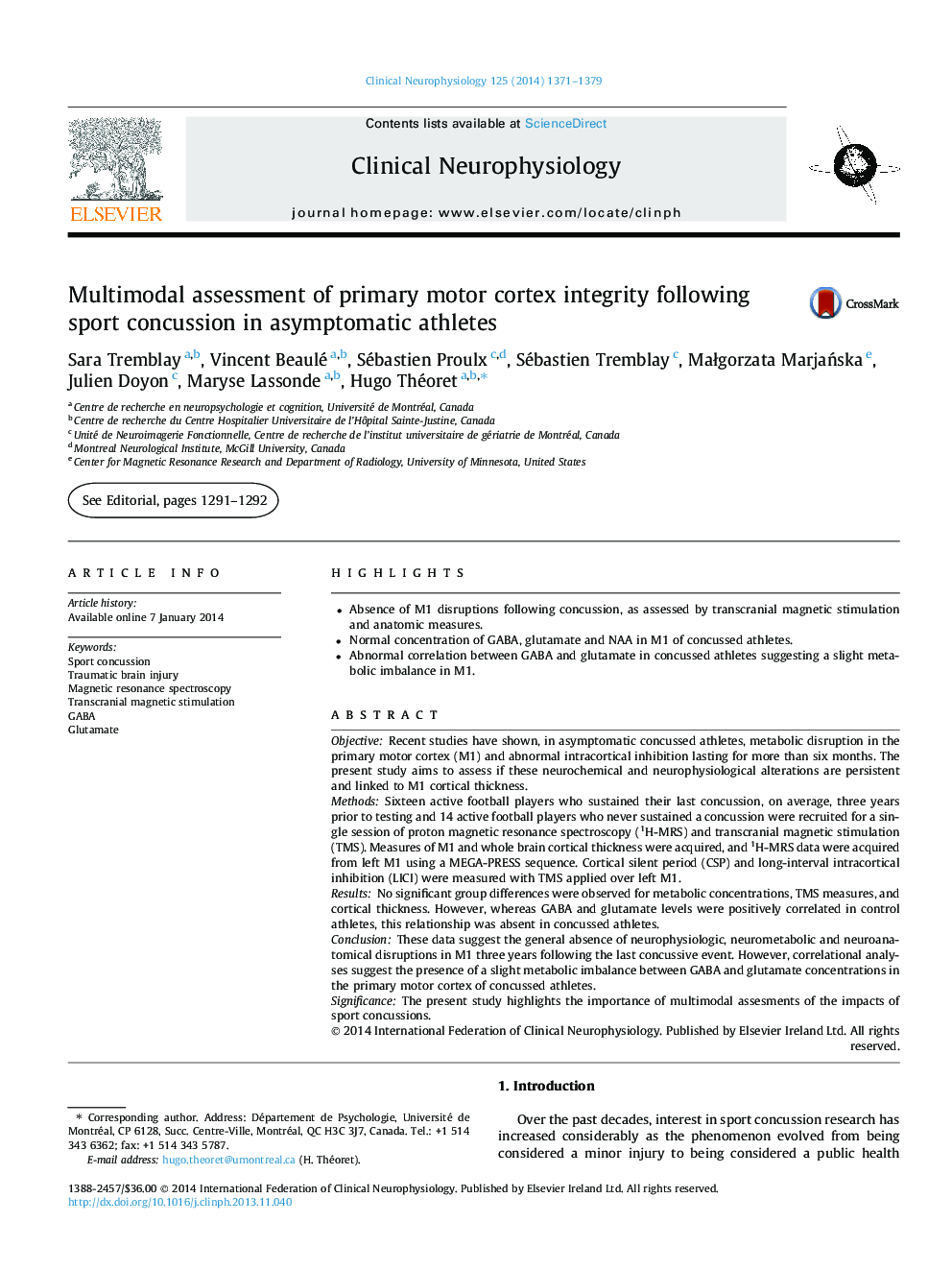| Article ID | Journal | Published Year | Pages | File Type |
|---|---|---|---|---|
| 3043909 | Clinical Neurophysiology | 2014 | 9 Pages |
•Absence of M1 disruptions following concussion, as assessed by transcranial magnetic stimulation and anatomic measures.•Normal concentration of GABA, glutamate and NAA in M1 of concussed athletes.•Abnormal correlation between GABA and glutamate in concussed athletes suggesting a slight metabolic imbalance in M1.
ObjectiveRecent studies have shown, in asymptomatic concussed athletes, metabolic disruption in the primary motor cortex (M1) and abnormal intracortical inhibition lasting for more than six months. The present study aims to assess if these neurochemical and neurophysiological alterations are persistent and linked to M1 cortical thickness.MethodsSixteen active football players who sustained their last concussion, on average, three years prior to testing and 14 active football players who never sustained a concussion were recruited for a single session of proton magnetic resonance spectroscopy (1H-MRS) and transcranial magnetic stimulation (TMS). Measures of M1 and whole brain cortical thickness were acquired, and 1H-MRS data were acquired from left M1 using a MEGA-PRESS sequence. Cortical silent period (CSP) and long-interval intracortical inhibition (LICI) were measured with TMS applied over left M1.ResultsNo significant group differences were observed for metabolic concentrations, TMS measures, and cortical thickness. However, whereas GABA and glutamate levels were positively correlated in control athletes, this relationship was absent in concussed athletes.ConclusionThese data suggest the general absence of neurophysiologic, neurometabolic and neuroanatomical disruptions in M1 three years following the last concussive event. However, correlational analyses suggest the presence of a slight metabolic imbalance between GABA and glutamate concentrations in the primary motor cortex of concussed athletes.SignificanceThe present study highlights the importance of multimodal assesments of the impacts of sport concussions.
